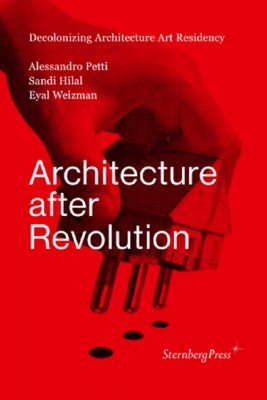By Alessandro Petti, Sandi Hilal & Eyal Weizman
The work presented in this book is an invitation to undertake an urgent architectural and political thought experiment: to rethink today’s struggles for justice and equality not only from the historical perspective of revolution, but also from that of a continued struggle for decolonization; consequently, to rethink the problem of political subjectivity not from the point of view of a Western conception of a liberal citizen but rather from that of the displaced and extraterritorial refugee. You will not find here descriptions of popular uprising, armed resistance, or political negotiations, despite these of course forming an integral and necessary part of any radical political transformation. Instead, the authors present a series of provocative projects that try to imagine “the morning after revolution.”
Located on the edge of the desert in the town of Beit Sahour in Palestine, the architectural collective Decolonizing Architecture Art Residency (DAAR) has since 2007 combined discourse, spatial intervention, collective learning, public meetings, and legal challenges to open an arena for speculating about the seemingly impossible: the actual transformation of Israel’s physical structures of domination. Against an architectural history of decolonization that sought to reuse colonial architecture for the same purpose for which it was originally built, DAAR sees opportunities in a set of playful propositions for the subversion, reuse, profanation, and recycling of these structures of domination and the legal infrastructures that sustain them.
New York, 2013, 22 x 15 cm, 206pp, illustrated, Hardback.
